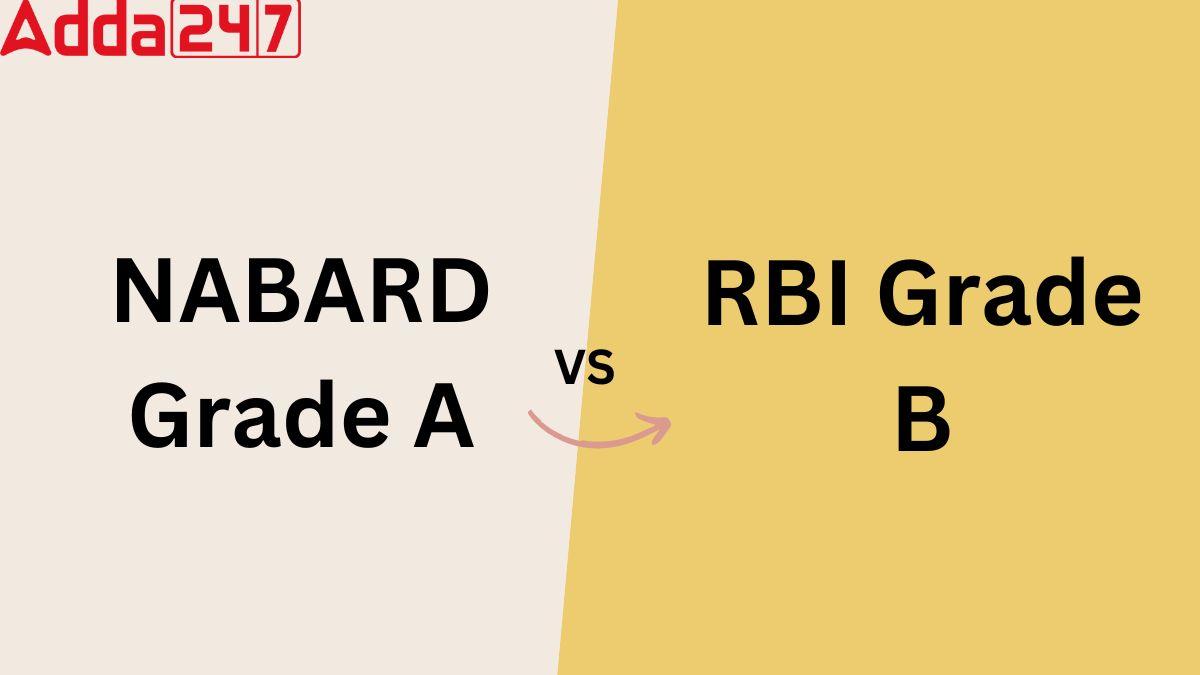Table of Contents
When you are about to pick a job between NABARD Grade A and RBI Grade B, you will be looking for two different career paths. Where NABARD Grade A is all about helping rural areas and RBI Grade B is all about managing money and banks. Both jobs have their chances to grow and have their challenges. By having a thorough understanding of what each job involves, who can apply, what you will be doing, and then can figure out which one fits you best. Check the article for proper understanding.
NABARD Grade A and RBI Grade B
NABARD Grade A and RBI Grade B are both different career choices each offering different opportunities and challenges. NABARD is a specialized development bank dedicated to rural and agricultural development. NABARD officers work for rural India, implement schemes and policies to enhance agricultural growth, empower rural communities, conduct policy research, and monitor big projects very closely. On the other hand, RBI GradeB officers’ work is all about monetary policy and regulation of the banking system. RBI officers involve themselves in formulating and implementing monetary policies, managing money circulation, regulating financial institutions, and conducting economic analysis. Both posts require rigorous exams and interviews, where RBI requires strong knowledge of finance and management concepts and NABARD requires a strong grasp of agricultural topics.
NABARD Grade A Vs RBI Grade B: Key Differences
Check the table below for more details.
| NABARD Grade A Vs RBI Grade B: Key Differences | ||
| Aspect | NABARD Grade A | RBI Grade B |
| Position | Assistant Manager | Manager |
| Mode of Examination | Online | Online |
| Selection Process | 3 Stage Process
|
3 Stage Process
|
| Exam Difficulty Level | Less Tough than RBI | Tougher than NABARD |
| Job Profile | Work on various policies and programs mandated by Central/State Governments related to Agricultural & Rural Development. | Managers first complete the training part and after training, the departments that are allotted are financial markets, banking supervision, banking regulation, currency-issuing, public debt office, foreign exchange, HRD, etc and the work in all the departments is different. |
| Probation | 2 Years | 2 Years |
| Posting | NABARD Grade A officer can be posted anywhere in India. | RBI Grade B officer gets posted in one of the major cities like Delhi, Mumbai, Kolkata, Chennai, Bangalore, Hyderabad, Lucknow, Nagpur, Ahmedabad, etc. |
| Salary | The initial monthly gross salary is approximately Rs. 62,600/-. | Initial monthly gross salary is approximately Rs. 77,208/- |
| Educational Qualification | Bachelor’s Degree in any discipline. | Bachelor’s Degree in any subject with a minimum of 60% marks. |
| Career Growth | As an assistant manager goes up to the Chief General Manager and then the Director. | An RBI Grade B officer starts at the managerial level, goes up to Chief General Managers, and then the RBI Deputy Governor which is just the next position to the RBI Governor. |
NABARD Grade A Vs RBI Grade B: Which One is Better
RBI is the central bank focusing on monetary policy formulation and maintaining stability nationwide whereas NABARD is a specialized development bank dedicated to rural and agricultural development. RBI offers diverse career opportunities for economists, bankers, financial analysts, and regulatory specialists. In contrast, NABARD provides credit and financial services to promote rural development and agricultural financing, supporting initiatives aimed at enhancing rural livelihoods and agricultural productivity.
Now, the banking sector should be decided on various aspects mentioned above in the article. If you want to work for rural India and its development then opt for NABARD Grade A or if you want to help India in the financial sector then go for RBI Grade B. Decide based on various aspects mentioned above and make a well-informed decision.
| Articles Related To NABARD Grade A Exam 2024 | |
| How to prepare for NABARD Grade A | NABARD Grade A Books |
| NABARD Grade A v/s NABARD Grade B | NABARD Grade A v/s RBI Grade B |
| NABARD Grade A v/s SBI PO | Does NABARD Grade A get home posting? |




 RPSC Agriculture Officer Admit Card 2025...
RPSC Agriculture Officer Admit Card 2025...
 ASRB NET Syllabus 2025, Check Detailed S...
ASRB NET Syllabus 2025, Check Detailed S...
 BSSC Field Assistant Recruitment 2025 No...
BSSC Field Assistant Recruitment 2025 No...


 Adda247 Job portal has complete information about all Sarkari Jobs and Naukri Alerts, its latest recruitment notifications, from all state and national level jobs and their updates.
Adda247 Job portal has complete information about all Sarkari Jobs and Naukri Alerts, its latest recruitment notifications, from all state and national level jobs and their updates.